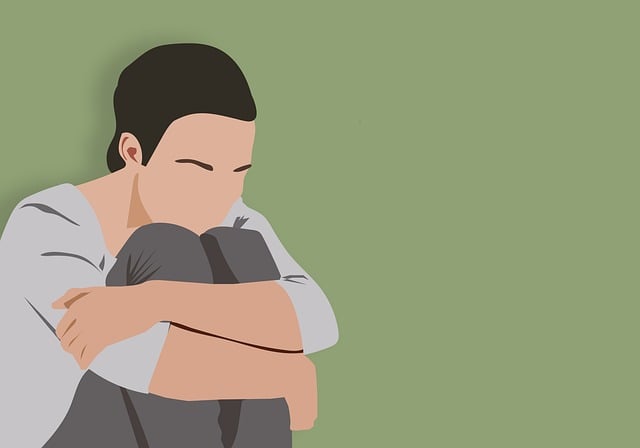Anxiety disorders, including GAD, Panic Disorder, Social Anxiety, and Specific Phobias, significantly impact daily life. Cognitive Behavioral Therapy (CBT), an evidence-based approach, effectively targets negative thought patterns through personalized therapy plans in Gilbert, AZ. CBT techniques, such as challenging thoughts, exposure exercises, and mindfulness, empower individuals to manage anxiety, improve well-being, and lead more balanced lives while providing the sought-after anxiety support Gilbert.
Suffering from anxiety? You’re not alone. In Gilbert, AZ, access effective anxiety support through cognitive-behavioral therapy (CBT), a proven strategy for managing disorders like panic attacks and social anxiety. This article explores CBT’s power, offering insights into its techniques, benefits, and tailored treatment plans. Discover strategies for daily life, coping skills, and supportive environments that help you reclaim control over your mental health in Gilbert.
- Understanding Anxiety Disorders: Symptoms and Types
- Cognitive-Behavioral Therapy (CBT): A Powerful Tool
- Strategies for Daily Life: CBT Techniques for Anxiety Management
- Building Coping Skills: Facing Fears with CBT
- Personalized Treatment Plans: Tailoring CBT to Your Needs
- Supportive Environment: Finding Comfort in Therapy Spaces
Understanding Anxiety Disorders: Symptoms and Types

Anxiety disorders are a common mental health concern that significantly impacts individuals’ daily lives. Understanding these disorders is the first step in seeking effective anxiety support Gilbert and recovery. Symptoms can vary widely but often include excessive worry, fear, and anxiety that are disproportionate to the situation, lasting for more than six months, and interfering with daily functioning.
There are several types of anxiety disorders, including generalized anxiety disorder (GAD), panic disorder, social anxiety disorder, and specific phobias. GAD is characterized by persistent, excessive worry about various aspects of life, such as work or health. Panic disorder involves recurrent, unexpected panic attacks, while social anxiety disorder leads to intense fear and avoidance of social situations due to concerns about embarrassment or judgment. Specific phobias are intense fears of particular objects or situations that are not logically connected to the actual danger they pose. Recognizing these symptoms and types is crucial in connecting individuals with appropriate therapy for anxiety Gilbert and effective counseling for anxiety.
Cognitive-Behavioral Therapy (CBT): A Powerful Tool

Cognitive-Behavioral Therapy (CBT) is a highly effective and evidence-based approach to managing anxiety disorders, offering individuals in Gilbert, AZ, powerful tools for overcoming their fears and anxieties. This form of therapy focuses on identifying and changing negative thought patterns and behaviors that contribute to anxiety. By challenging distorted thinking and replacing it with more realistic, positive thoughts, CBT enables individuals to develop coping strategies that reduce the intensity of anxious feelings.
For those seeking anxiety support Gilbert, a Chandler anxiety therapist can guide them through this process. CBT helps individuals understand how their thoughts, feelings, and behaviors are interconnected, teaching them to manage their anxiety in real-time. Through structured sessions, clients learn specific techniques to confront triggers, face fears, and modify unhelpful behaviors, ultimately gaining greater control over their lives and reducing the impact of anxiety disorders.
Strategies for Daily Life: CBT Techniques for Anxiety Management

Anxiety can significantly impact daily life, but Cognitive Behavioral Therapy (CBT) offers practical strategies to reclaim control. In CBT, individuals learn to identify and challenge negative thought patterns that contribute to anxiety. This involves understanding that thoughts, feelings, and behaviors are interconnected, and by changing one’s thinking, one can alter their emotional response and subsequent actions. For instance, a person with social anxiety might realize they interpret social situations negatively, leading to avoidance. CBT encourages reframing these interpretations, fostering more adaptive behaviors like gradual exposure to feared scenarios, thereby reducing anxiety over time.
Integrating CBT techniques into daily routines is key to managing anxiety effectively. This includes keeping a journal to track thoughts and emotions, practicing mindfulness to stay present, and engaging in regular physical activity known to boost mood. Learning relaxation exercises, such as deep breathing or progressive muscle relaxation, helps calm the mind and body during anxious moments. Additionally, setting achievable goals and breaking tasks into manageable steps can reduce overwhelm, providing a sense of accomplishment and control. These strategies, coupled with professional guidance from therapy for anxiety in Gilbert or counseling for anxiety in Mesa, empower individuals to manage symptoms and improve their overall well-being.
Building Coping Skills: Facing Fears with CBT

Anxiety disorders can be overwhelming, but Cognitive Behavioral Therapy (CBT) offers a powerful tool to take control and manage symptoms effectively. CBT focuses on identifying negative thought patterns and replacing them with healthier, more realistic ones. Through this process, individuals learn to challenge and change their perceptions, which significantly reduces anxiety and promotes a sense of calm.
One of the key aspects of CBT is facing fears in a controlled environment. By gradually exposing oneself to anxious triggers, patients can build coping skills and resilience. This technique empowers them to navigate challenging situations with greater confidence, making it an invaluable asset for long-term anxiety support in Gilbert, AZ. Seeking mental health counseling in Gilbert or exploring anxiety therapy in Gilbert can open doors to these transformative techniques and lead to a more balanced and fulfilling life.
Personalized Treatment Plans: Tailoring CBT to Your Needs

In creating personalized treatment plans, therapists specializing in cognitive-behavioral therapy (CBT) in Gilbert, AZ meticulously consider each client’s unique needs and circumstances. This approach ensures that the strategies employed are not one-size-fits-all but rather targeted at addressing specific anxiety triggers and behaviors. By integrating individual assessments and ongoing feedback, therapists develop tailored CBT programs that effectively manage symptoms and enhance overall well-being.
For instance, a personalized plan might include techniques for identifying and challenging negative thought patterns unique to the client, coupled with exposure exercises specifically designed to confront and overcome fears. This individualized focus extends to scheduling and delivery methods, accommodating busy schedules or preferences for remote sessions. The ultimate goal is to provide anxiety support in Gilbert that not only alleviates current symptoms but also equips individuals with lasting coping mechanisms for future challenges, making it a valuable resource for those seeking therapy for anxiety in Gilbert, Mesa, or Chandler.
Supportive Environment: Finding Comfort in Therapy Spaces

In a city like Gilbert, AZ, where anxiety support is increasingly sought after, creating a supportive environment in therapy spaces is paramount. When individuals step into a therapy office or counseling center, they’re not just looking for treatment; they seek a sanctuary where they feel understood and safe to explore their emotions. A supportive environment means going beyond the four walls of a room—it involves cultivating a sense of comfort and trust between the therapist and client, fostering open dialogue and encouraging vulnerability. This is crucial for effectively addressing anxiety disorders, as it allows individuals to confront their fears and work towards lasting change without feeling judged or overwhelmed.
For those seeking therapy for anxiety in Gilbert or Chandler, finding a mental health counseling service that prioritizes a warm, welcoming atmosphere can significantly impact the overall therapeutic experience. A supportive setting isn’t just about aesthetics; it’s about active listening, empathy, and strategies tailored to each client’s unique needs. This personalized approach not only makes sessions more productive but also helps individuals feel empowered to manage their anxiety symptoms in various aspects of their daily lives.
